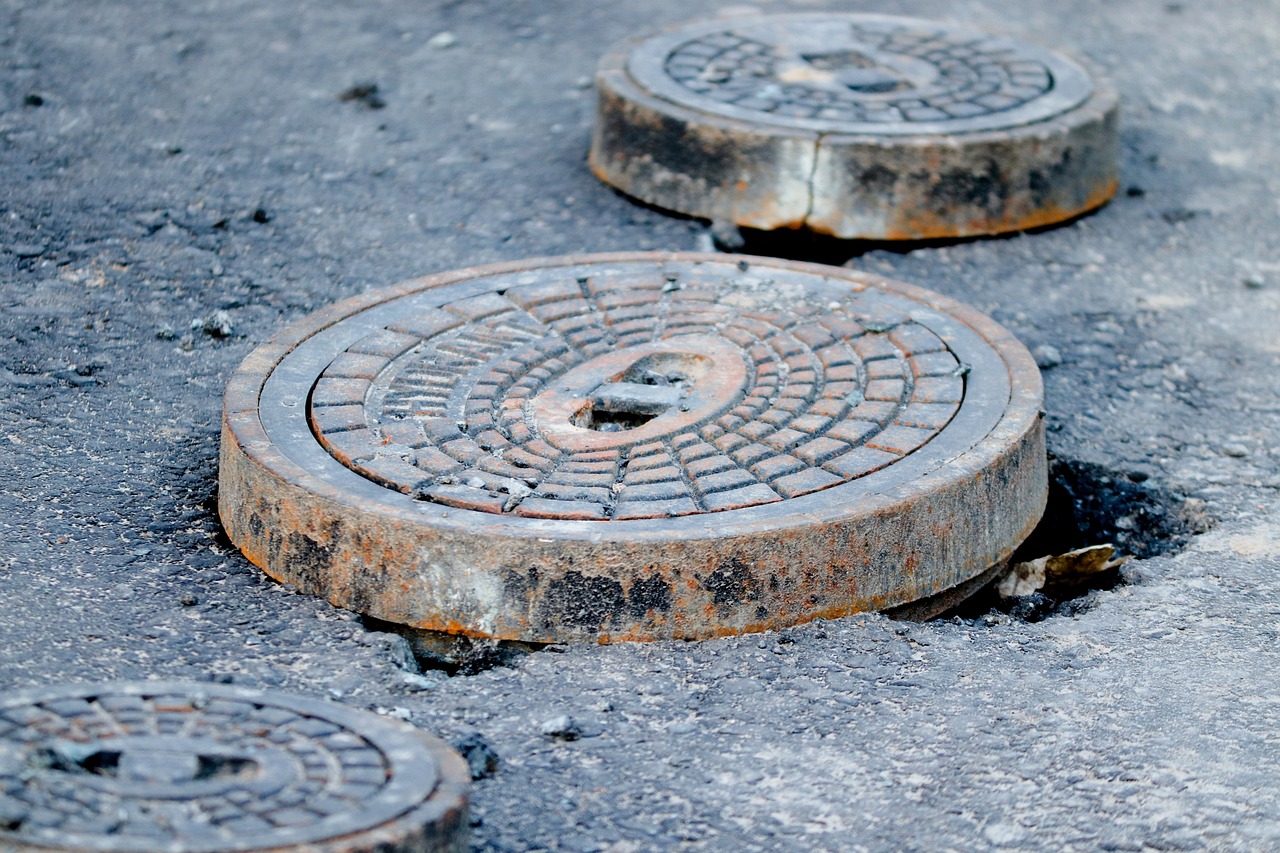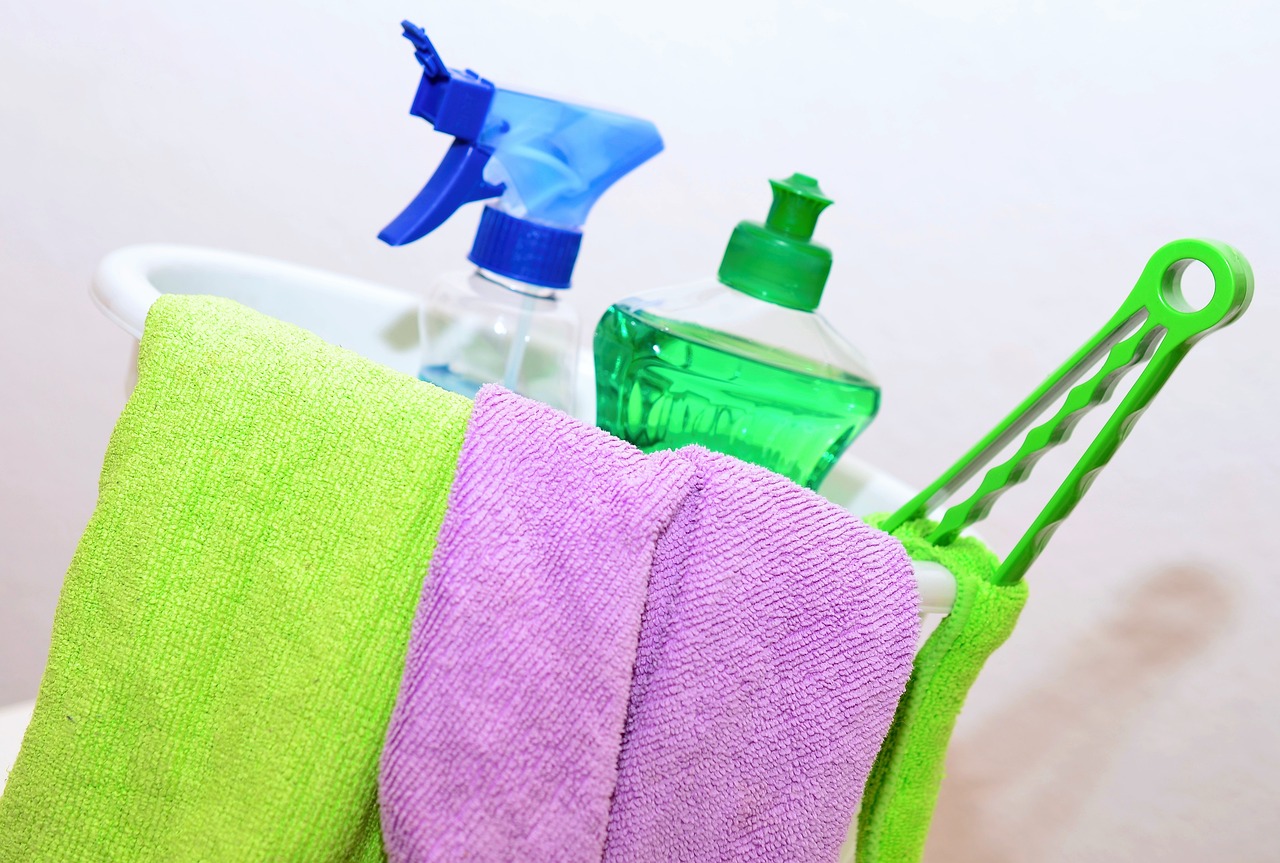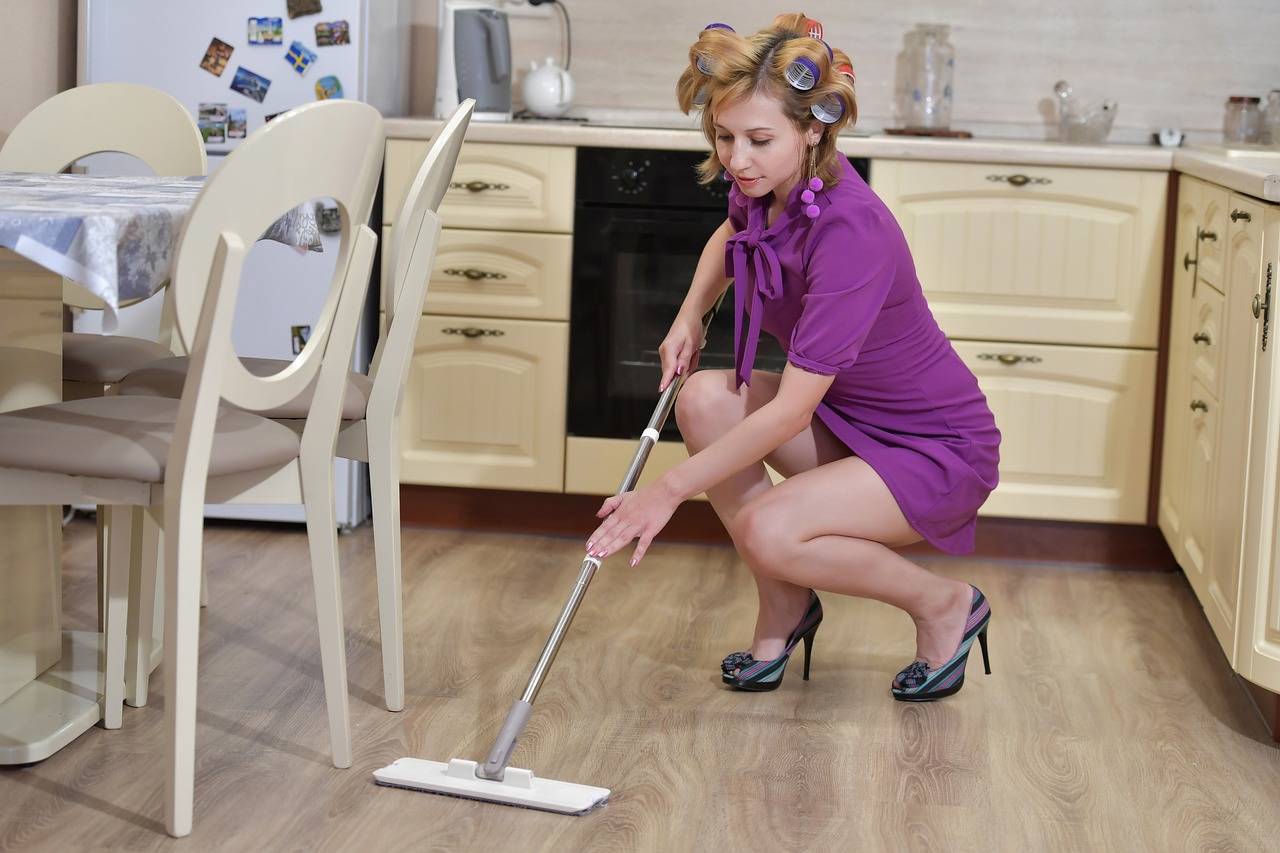How to Create a Comprehensive Weekly Cleaning Schedule
Creating a comprehensive weekly cleaning schedule is essential for maintaining a clean and organized home without feeling overwhelmed by the tasks at hand. By setting aside dedicated time each week to tackle various cleaning chores, you can ensure that your living space remains fresh and inviting. Let's delve into the key aspects of creating an effective weekly cleaning schedule that works for you and your household.

Benefits of a Weekly Cleaning Schedule
Having a weekly cleaning schedule offers numerous benefits that go beyond just a tidy home. One of the main advantages is the ability to save time and effort in the long run. By dedicating specific time each week to cleaning tasks, you can prevent clutter from accumulating and avoid the overwhelming task of deep cleaning all at once.
Moreover, a structured cleaning routine can improve the overall cleanliness and organization of your living space. Regular maintenance helps to reduce dust, allergens, and germs, creating a healthier environment for you and your family. This not only enhances the aesthetic appeal of your home but also contributes to a healthier lifestyle.
Another benefit of a weekly cleaning schedule is the mental satisfaction it brings. A clean and organized home can have a positive impact on your mental well-being, reducing stress and promoting a sense of calm and relaxation. Knowing that your living space is clean and clutter-free can boost your mood and overall quality of life.

Setting Realistic Cleaning Goals
When it comes to maintaining a clean and organized home, setting realistic cleaning goals is essential for ensuring that your weekly cleaning schedule is achievable and effective. It's important to establish objectives that are both manageable and beneficial for the overall cleanliness of your living space. By setting realistic cleaning goals, you can avoid feeling overwhelmed and ensure that your cleaning routine is sustainable in the long run.
One approach to setting realistic cleaning goals is to prioritize tasks based on their importance and frequency. Identify key areas in your home that require regular attention, such as high-traffic areas or spaces that are more prone to dirt and grime. By focusing on these areas first, you can ensure that your cleaning efforts are targeted and impactful.
Additionally, consider breaking down larger cleaning tasks into smaller, more manageable steps. This can help prevent procrastination and make it easier to tackle challenging cleaning projects. By setting incremental goals, you can track your progress and stay motivated to continue with your cleaning routine.
It's also important to be flexible with your cleaning goals and adjust them as needed. Life can be unpredictable, and unexpected events or changes in circumstances may require you to adapt your cleaning schedule. By being open to making adjustments when necessary, you can maintain a sense of control and prevent feelings of frustration or failure.
Remember, the goal of setting realistic cleaning goals is not perfection, but rather progress. Celebrate your achievements, no matter how small, and acknowledge the effort you put into maintaining a clean and tidy home. By setting achievable objectives and staying committed to your cleaning routine, you can create a living environment that is both comfortable and welcoming for you and your family.

Room-by-Room Cleaning Strategies
When it comes to maintaining a clean and organized home, having effective room-by-room cleaning strategies is essential. Each area of your house presents unique challenges and requirements, so it's important to approach cleaning with a tailored plan for each room. By focusing on specific cleaning techniques for different spaces, you can ensure that your entire home receives the attention it needs to stay fresh and welcoming.
One key strategy for efficient room-by-room cleaning is to start from the top and work your way down. Begin by dusting ceiling fans, light fixtures, and high shelves before moving on to surfaces at eye level and finally tackling floors. This approach helps prevent dust and dirt from falling onto areas you've already cleaned, saving you time and effort in the long run.
When cleaning the kitchen, pay special attention to high-traffic areas like countertops, sinks, and appliances. Use appropriate cleaners for different surfaces to ensure a thorough clean without damaging finishes. Don't forget to empty and clean out the refrigerator regularly to prevent odors and food spoilage.
In the bathroom, focus on disinfecting commonly touched surfaces such as faucets, doorknobs, and toilet handles. Use a mildew remover to keep shower tiles and grout looking fresh and free of mold. Regularly laundering bath linens and shower curtains can also help maintain a clean and hygienic bathroom environment.
When it comes to the bedroom, prioritize washing bedding, pillows, and mattress covers to eliminate dust mites and allergens. Vacuuming under the bed and in corners where dust tends to accumulate can help improve air quality and create a more restful sleeping environment. Decluttering surfaces like nightstands and dressers can also contribute to a sense of calm and order in the room.
Living areas such as the living room or den benefit from regular vacuuming and dusting to keep furniture and upholstery looking their best. Use a lint roller or fabric brush to remove pet hair from sofas and chairs, and consider rotating cushions to ensure even wear. Pay attention to decorative items like curtains, rugs, and throw pillows, which can collect dust and require regular cleaning.
By approaching cleaning with a room-by-room strategy, you can effectively manage the maintenance of your home and ensure that each area receives the attention it needs. Tailoring your cleaning routine to the specific requirements of each room can help you achieve a consistently clean and comfortable living space.

Organizing Cleaning Supplies
When it comes to maintaining a clean and organized home, having your cleaning supplies in order is essential. not only helps streamline the cleaning process but also saves you time and effort in the long run. Imagine trying to clean up a spill quickly, only to waste precious minutes searching for the right cleaner or tool amidst a cluttered mess of supplies. By establishing a designated storage area for your cleaning products and tools, you can ensure easy access and efficient use of your supplies.
One effective way to organize your cleaning supplies is to create a dedicated cleaning station. This can be a specific area in a closet, pantry, or utility room where all your supplies are stored together. Consider using shelves, hooks, or bins to categorize and store different types of cleaning products. By grouping similar items together, you can easily locate what you need when cleaning different areas of your home.
Another helpful tip is to label your cleaning supplies. Whether you use a labeling machine or simply write on containers with a marker, clear labels can prevent confusion and help you quickly identify the right product for the task at hand. Additionally, storing cleaning supplies in a caddy or portable tote can make it convenient to carry your essentials from room to room as you clean.
For bulkier items like mops, brooms, and vacuum cleaners, consider investing in storage solutions that keep these tools neatly organized and easily accessible. Wall-mounted racks, over-the-door organizers, or standalone cabinets can help maximize space and keep your cleaning tools tidy. By keeping everything in its rightful place, you can avoid clutter and create a more efficient cleaning routine.
Remember to regularly declutter your cleaning supplies by discarding expired or unused products. Over time, cleaning supplies can accumulate, taking up valuable space and making it harder to find what you need. By periodically purging old or unnecessary items, you can maintain a well-organized cleaning supply inventory and ensure that you only keep what is essential for your cleaning tasks.

Scheduling Deep Cleaning Tasks
When it comes to maintaining a clean and organized home, incorporating deep cleaning tasks into your weekly schedule is essential for ensuring a thorough and healthy living environment. Deep cleaning goes beyond the regular surface cleaning and focuses on areas that are often neglected in day-to-day tidying up. By scheduling deep cleaning tasks on a weekly basis, you can tackle areas that accumulate dirt, dust, and grime over time, preventing the buildup of allergens and bacteria.
One effective strategy for scheduling deep cleaning tasks is to designate specific days or times during the week to focus on different areas of your home. For example, you can set aside a few hours every weekend to deep clean the kitchen, bathrooms, and living areas. By breaking down the tasks into manageable chunks and spreading them out throughout the week, you can prevent feeling overwhelmed by the amount of cleaning required.
Creating a checklist of deep cleaning tasks for each room can also help you stay organized and ensure that no area is overlooked. Include tasks such as scrubbing grout, dusting ceiling fans, cleaning behind appliances, and washing windows in your checklist. By systematically working through the list each week, you can maintain a high level of cleanliness in your home and prolong the lifespan of your furniture and fixtures.
Additionally, it's important to prioritize deep cleaning tasks based on the level of dirt and grime present in each area. Focus on high-traffic areas and frequently used spaces that are more prone to accumulating dust and dirt. By targeting these areas first, you can create a cleaner and healthier living environment for you and your family.
Remember that deep cleaning tasks may require more time and effort compared to regular cleaning, so it's important to allocate sufficient time in your weekly schedule to complete these tasks thoroughly. Consider enlisting the help of family members or roommates to divide and conquer the deep cleaning chores, making the process more efficient and enjoyable.

Incorporating Laundry and Linen Care
When it comes to creating a comprehensive weekly cleaning schedule, one crucial aspect that often gets overlooked is incorporating laundry and linen care. This essential task not only ensures that your clothes and linens remain fresh and well-maintained but also contributes to the overall cleanliness and hygiene of your home.
Laundry care involves more than just throwing clothes into the washing machine. It requires careful consideration of fabric types, washing instructions, and stain removal techniques. By dedicating specific time slots in your weekly schedule for laundry tasks, you can stay on top of your family's clothing needs without feeling overwhelmed.
Similarly, linen care plays a significant role in maintaining a clean and inviting home environment. Sheets, towels, and other linens should be washed regularly to prevent the buildup of dirt, dust, and bacteria. By including linen care in your cleaning routine, you can ensure that your family always has fresh, comfortable linens to use.
Organizing your laundry area and linen storage can also streamline the cleaning process. Keep your detergents, fabric softeners, and stain removers neatly arranged for easy access. Consider using labeled containers or shelves to maintain order and efficiency in your laundry room.
Additionally, establishing a system for sorting and washing different types of fabrics can help prolong the life of your clothes and linens. Separate whites from colors, delicate items from sturdy ones, and follow care labels to prevent damage during the washing and drying process.
Remember, incorporating laundry and linen care into your weekly cleaning schedule is not just about cleanliness; it's about caring for your belongings and creating a comfortable living environment for you and your family. By giving these tasks the attention they deserve, you can enjoy the benefits of fresh, clean clothes and linens throughout the week.

Creating a Family Cleaning Plan
Creating a family cleaning plan can be a game-changer when it comes to maintaining a clean and organized home. By involving all family members in the cleaning process, you not only lighten the workload but also instill a sense of responsibility and teamwork. To create an effective family cleaning plan, communication is key. Sit down with your family members and discuss the importance of a clean home and how everyone's contribution matters.
Delegate tasks based on each person's abilities and preferences. Some may excel at vacuuming, while others are great at organizing. By assigning tasks accordingly, you ensure that each family member plays to their strengths, making the cleaning process more efficient and enjoyable.
Consider creating a cleaning schedule that rotates tasks weekly or monthly to prevent boredom and ensure that everyone gets a chance to tackle different areas of the house. This not only keeps things interesting but also helps in developing new skills and a better understanding of the cleaning process.
Encourage open communication and feedback within the family cleaning plan. Allow family members to express their thoughts on the cleaning schedule, tasks, and areas that may need more attention. By fostering a collaborative environment, everyone feels valued and motivated to contribute positively to the cleanliness of the home.
Remember, a family cleaning plan is not just about getting the chores done; it's about building a sense of unity and shared responsibility within the household. Celebrate small victories together, whether it's completing a deep cleaning task or maintaining a clutter-free living room. By acknowledging each other's efforts, you create a supportive and encouraging atmosphere that makes cleaning less of a chore and more of a bonding experience.

Adapting the Schedule for Special Events
When it comes to maintaining a clean and organized home, having a weekly cleaning schedule in place is crucial. However, there are times when special events, holidays, or unexpected guests can disrupt your routine. So, how can you adapt your cleaning schedule to accommodate these special occasions without feeling overwhelmed?
One strategy is to plan ahead and identify upcoming events that may require adjustments to your cleaning routine. By anticipating special occasions, you can make necessary changes to your schedule without feeling rushed or stressed. This proactive approach allows you to stay on top of your cleaning tasks while also enjoying the festivities.
Another tip is to prioritize essential cleaning tasks and focus on high-traffic areas that will be most visible to guests. Instead of trying to tackle every corner of your home, concentrate on key areas such as the living room, kitchen, and bathroom. By prioritizing these spaces, you can create a welcoming environment for visitors without feeling overwhelmed by the entire house.
Additionally, consider enlisting the help of family members or housemates to divide and conquer cleaning tasks during busy periods. By delegating responsibilities and working together as a team, you can lighten the workload and ensure that everyone contributes to preparing the home for special events. This collaborative approach fosters a sense of unity and shared responsibility among household members.
Furthermore, be flexible with your cleaning schedule and be willing to adjust your routine as needed. Special events often come with unexpected changes and last-minute preparations, so it's essential to be adaptable and open to modifying your plans. Remember that the goal is not perfection but creating a clean and comfortable space for guests to enjoy.

Maintaining Consistency and Flexibility
Maintaining consistency and flexibility in your weekly cleaning schedule is crucial to achieving long-term success in keeping your home clean and organized. Consistency ensures that you stay on track with your cleaning tasks, preventing clutter and dirt from piling up. Flexibility, on the other hand, allows you to adapt to unexpected changes in your schedule without feeling overwhelmed or stressed.
Think of consistency as the foundation of your cleaning routine. Just like building a sturdy house requires a solid foundation, maintaining a clean home relies on consistent effort. By sticking to a regular cleaning schedule, you create a habit that becomes second nature over time. It's like watering a plant regularly to help it grow and thrive.
However, being consistent doesn't mean being rigid. Life is unpredictable, and unexpected events can throw off your plans. This is where flexibility comes into play. Flexibility allows you to adjust your cleaning schedule when needed, without feeling guilty or anxious about deviating from your original plan. It's like a tree bending with the wind to avoid breaking.
One way to maintain both consistency and flexibility is to prioritize your cleaning tasks based on importance. Identify the essential chores that must be done each week to keep your home clean and healthy. These tasks should be non-negotiable and form the core of your cleaning schedule. Then, allocate time for less critical tasks that can be shifted around if necessary.
Another strategy is to set realistic expectations for yourself. Understand that perfection is not the goal, and it's okay to have a slightly messy house at times. By accepting imperfection and focusing on progress rather than perfection, you can reduce the pressure you put on yourself to maintain an immaculate home at all times.
Remember, consistency and flexibility go hand in hand. Consistency provides stability and routine, while flexibility allows you to adapt to changes and challenges. Finding the right balance between the two will help you create a sustainable cleaning schedule that works for you and your household.
Frequently Asked Questions
- What are the benefits of having a weekly cleaning schedule?
A weekly cleaning schedule helps maintain a clean and organized home, saves time and effort in the long run, reduces stress, and promotes a healthier living environment.
- How can I set realistic cleaning goals for each week?
To set realistic cleaning goals, assess your cleaning needs, prioritize tasks, break them down into manageable chunks, allocate specific time slots for each task, and be flexible to adjust as needed.
- What are some room-by-room cleaning strategies I can use?
Room-by-room cleaning strategies include decluttering before cleaning, using efficient cleaning tools and products, following a top-to-bottom and left-to-right cleaning pattern, and focusing on high-traffic areas.
- How should I organize my cleaning supplies for easy access?
Organize your cleaning supplies by category, label containers, store them in a designated area, keep frequently used items within reach, and regularly declutter and restock supplies to maintain efficiency.
- Why is it important to schedule deep cleaning tasks weekly?
Incorporating deep cleaning tasks weekly helps prevent the buildup of dirt and grime, maintains the longevity of your home's surfaces and appliances, and ensures a thorough and comprehensive cleaning routine.
- How can I involve my family in the cleaning process effectively?
To involve your family in cleaning, assign age-appropriate tasks, create a cleaning schedule together, set clear expectations, offer incentives or rewards, and lead by example to foster a sense of responsibility and teamwork.
- How do I adapt my cleaning schedule for special events or unexpected guests?
Adapting your cleaning schedule for special events involves prioritizing essential tasks, delegating responsibilities, setting aside extra time for thorough cleaning, and being flexible to make adjustments as needed to accommodate guests or celebrations.
- What is the key to maintaining consistency and flexibility in a cleaning schedule?
The key to maintaining consistency and flexibility is to establish a routine that works for you, communicate openly with family members about schedule changes, stay organized, be adaptable to unforeseen circumstances, and remember that a clean home is a shared responsibility.



















